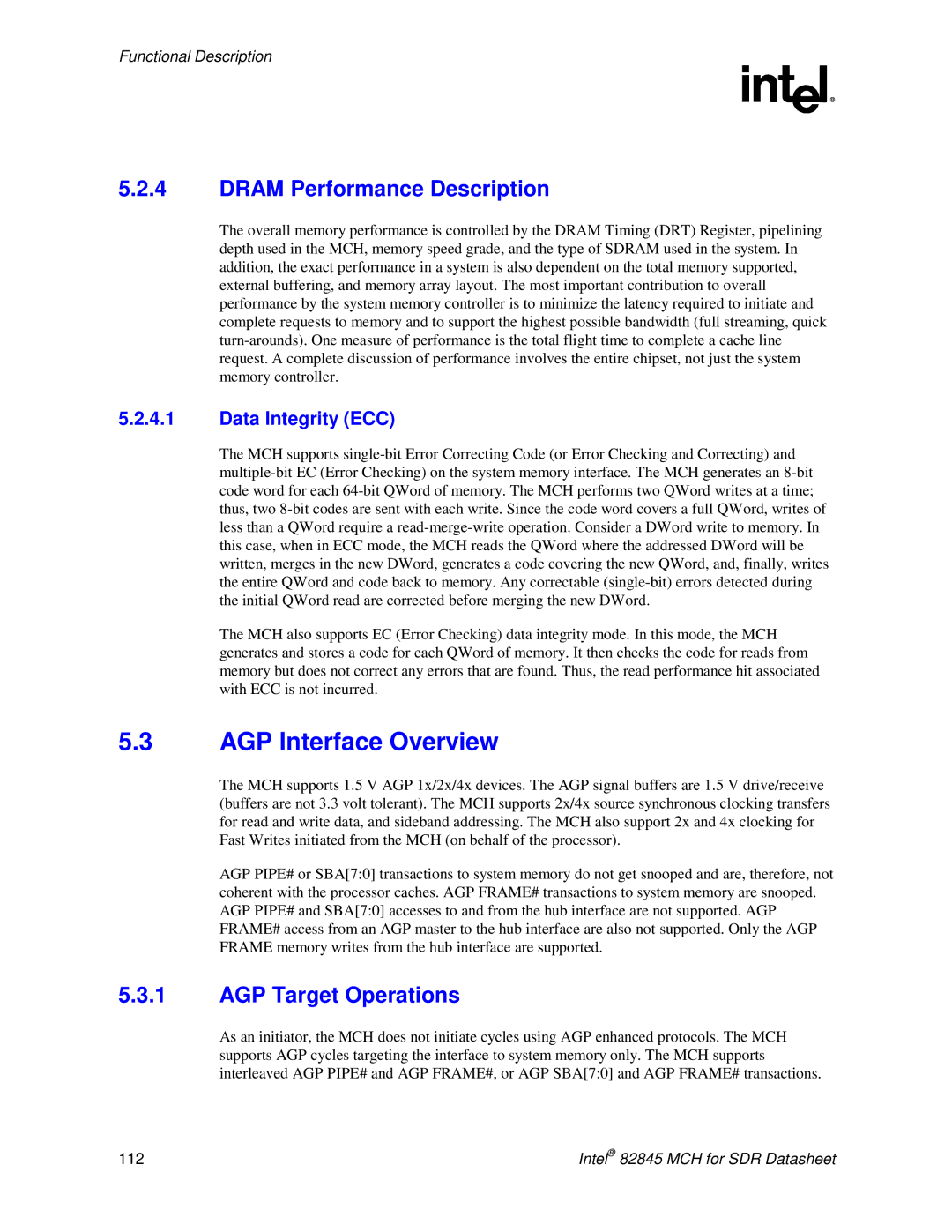Functional Description
R
5.2.4DRAM Performance Description
The overall memory performance is controlled by the DRAM Timing (DRT) Register, pipelining depth used in the MCH, memory speed grade, and the type of SDRAM used in the system. In addition, the exact performance in a system is also dependent on the total memory supported, external buffering, and memory array layout. The most important contribution to overall performance by the system memory controller is to minimize the latency required to initiate and complete requests to memory and to support the highest possible bandwidth (full streaming, quick
5.2.4.1Data Integrity (ECC)
The MCH supports
The MCH also supports EC (Error Checking) data integrity mode. In this mode, the MCH generates and stores a code for each QWord of memory. It then checks the code for reads from memory but does not correct any errors that are found. Thus, the read performance hit associated with ECC is not incurred.
5.3AGP Interface Overview
The MCH supports 1.5 V AGP 1x/2x/4x devices. The AGP signal buffers are 1.5 V drive/receive (buffers are not 3.3 volt tolerant). The MCH supports 2x/4x source synchronous clocking transfers for read and write data, and sideband addressing. The MCH also support 2x and 4x clocking for Fast Writes initiated from the MCH (on behalf of the processor).
AGP PIPE# or SBA[7:0] transactions to system memory do not get snooped and are, therefore, not coherent with the processor caches. AGP FRAME# transactions to system memory are snooped. AGP PIPE# and SBA[7:0] accesses to and from the hub interface are not supported. AGP FRAME# access from an AGP master to the hub interface are also not supported. Only the AGP FRAME memory writes from the hub interface are supported.
5.3.1AGP Target Operations
As an initiator, the MCH does not initiate cycles using AGP enhanced protocols. The MCH supports AGP cycles targeting the interface to system memory only. The MCH supports interleaved AGP PIPE# and AGP FRAME#, or AGP SBA[7:0] and AGP FRAME# transactions.
112 | Intel® 82845 MCH for SDR Datasheet |
